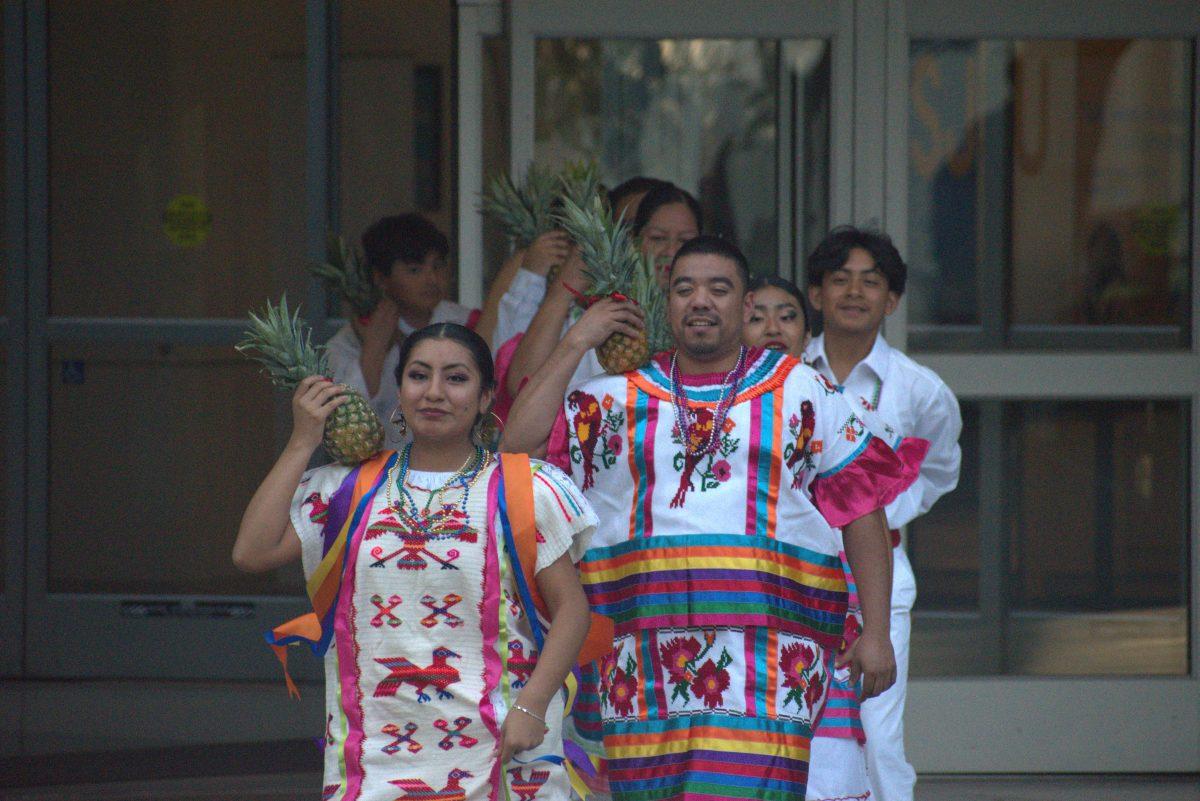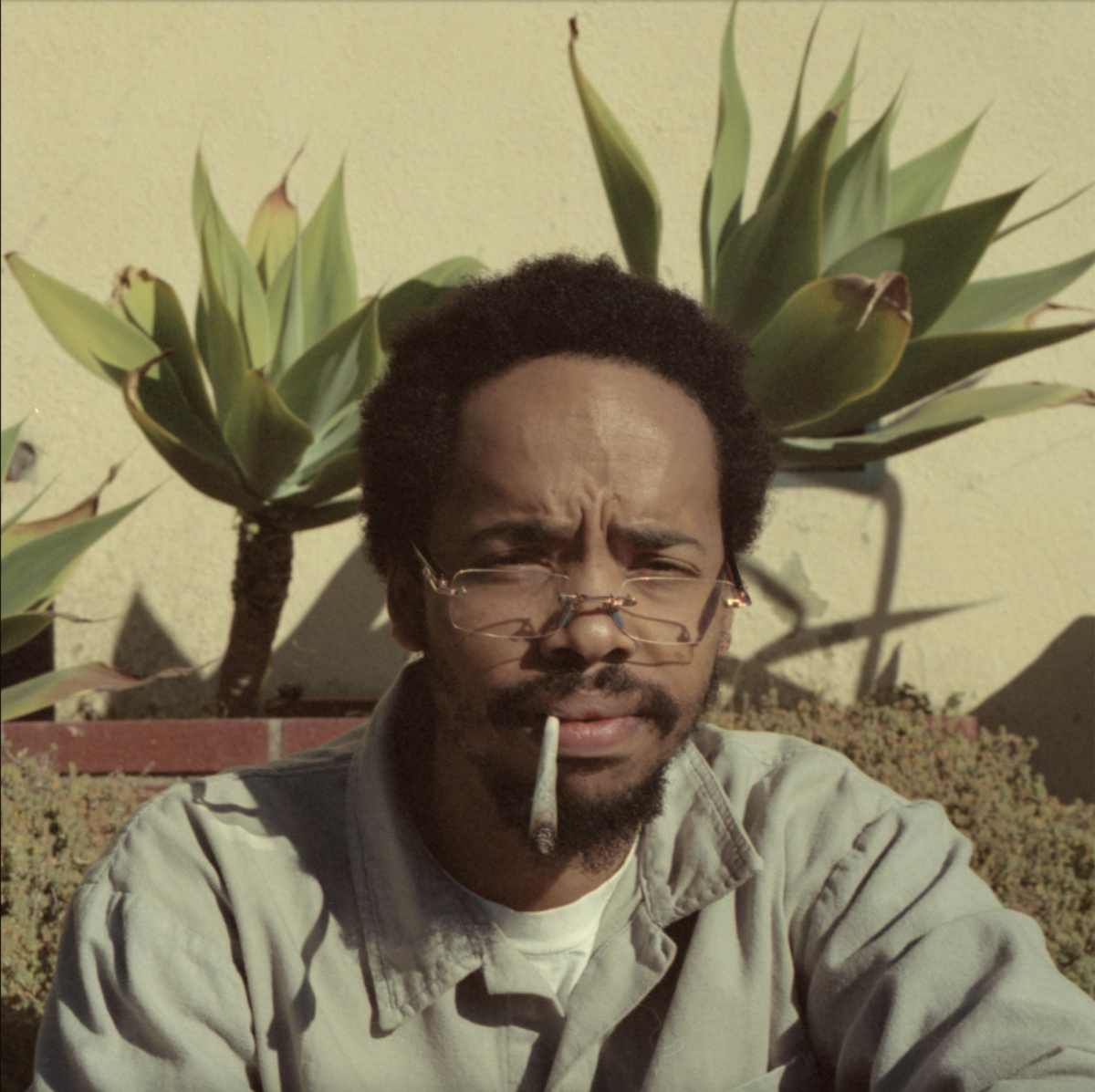Students entering the Dr. Martin Luther King Jr. Library on Friday evening were greeted by a line of bright skirts and Mexican folk music as Folclórico Colibrí performed in honor of Hispanic Heritage Month.
Ensamble Folclórico Colibri is a dance group that looks to celebrate queer identities and honor traditional Folklórico, allowing people to express their cultural and sexual identities through the art of dance, according to its website.
The ensemble was founded in 2015 by current director Arturo Magaña and Rodrigo García, who is no longer with the group.
Folklórico is a traditional dance from Mexico involving different styles of fashion, dance moves, and music from each region of the country, according to a Vanderbilt University article.
Folklórico, which is still practiced in Mexico today, uses movement and music to reflect the cultural and spiritual beliefs, customs and stories of the people who dance to it, according to the same website.
Arturo Magaña, the director and founder of Folclórico Colibrí, started off as one of the few performing dancers of the group when they first opened and since believes they have grown so much with a variety of new people.
“We accept everyone no matter what size you are, no matter what color you are, no matter how you wear your hair, or if you have piercings, none of that matters,” Magaña said. “Once new people come in it just adds to our beautiful family, we are a very close knit family.”
Essy Barroso-Ramirez, research and social sciences librarian at MLK Library, who curated a Folclórico Colibrí-centric exhibit on the fifth floor of the library said the group and its message evokes strong emotions for her.
She said when she first discovered Colibrí, it was her first time seeing a male-presenting dancer doing faldeos, which is the skirt work technique used to manipulate the appearance of the colors and the shape of the skirt itself using inward and outward motions.
“Growing up, I’m Mexican American, and I had a lot of loved ones who couldn’t live authentically because of feelings of shame or feeling pressured by their families to just be straight or present themselves as straight,” said Barroso-Ramirez. “So to see the art so authentically performed, it was just incredibly inspirational.”
The exhibit consists of photos, videos, outfits and accessories that Folclórico Colibrí uses.
Faculty Director of Academic & Community Engagement & of the Africana, Asian American, Chicano, & Native American Studies Center (AAACNA) Kathryn Blackmer Reyes said she thinks the exhibit is important to have at the center because it correlates with the identities the center speaks to such as culture, heritage and sexuality.
“The complexities of people in our communities need to be represented in our exhibits. It’s a greater whole rather than only the queer stuff on one side and general stuff on the other. We’re all inclusive and intersectional and so are our presentations,” said Blackmer Reyes. “This exhibit in particular shows a dynamic of complexities of the culture and tradition and individuals’ sexualities. People who wish to be part of a community that is not just about expressing or learning about their own culture but is about accepting all. You don’t need to be queer, you don’t need to be straight. There’s room for everyone in this particular group.”
Barroso-Ramirez said she also thinks this exhibit is important to display at the MLK Library because it is a staple of the San José community, and can expose Folklórico to crowds who may be able to relate to it through their own identity.
“This exhibit is important because I strongly believe that you should be proud of your heritage and your culture,” said Barroso-Ramirez. “However, you shouldn’t have to compromise parts of your identity to feel proud of your culture,” she said.
Magaña said he believes the exhibit only adds to the support Folclórico Colirbí gets from all people, LGBTQ+ or not, in the San José community.
“The exhibit is giving us a huge platform, it shows people that folclórico exists and has so many beautiful colors, and so many genders,” said Magaña. “The LGBTQ+ community has always been a part of the folclórico world, but it just needed someone to bring us up to the front and say ‘We are here too.’”






































